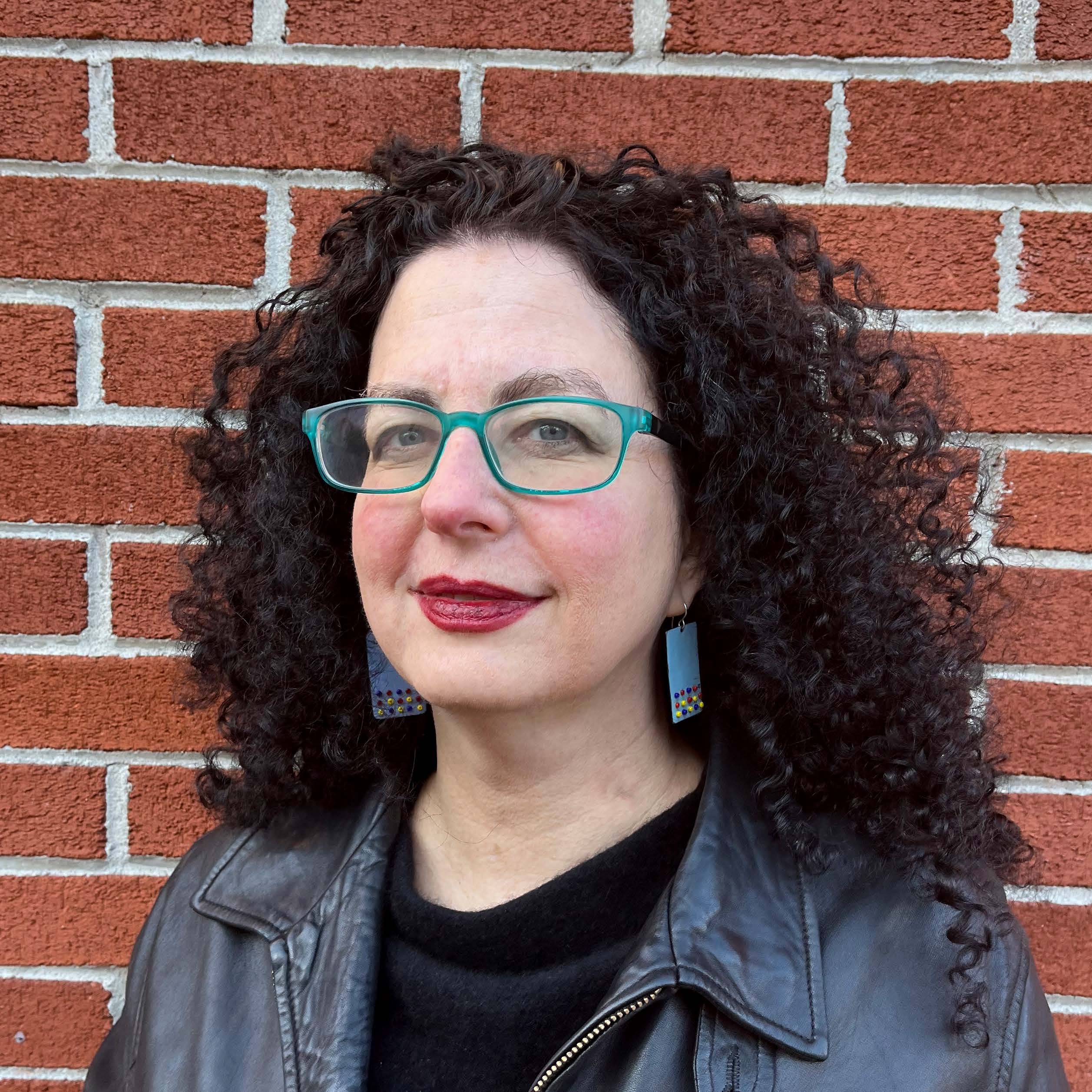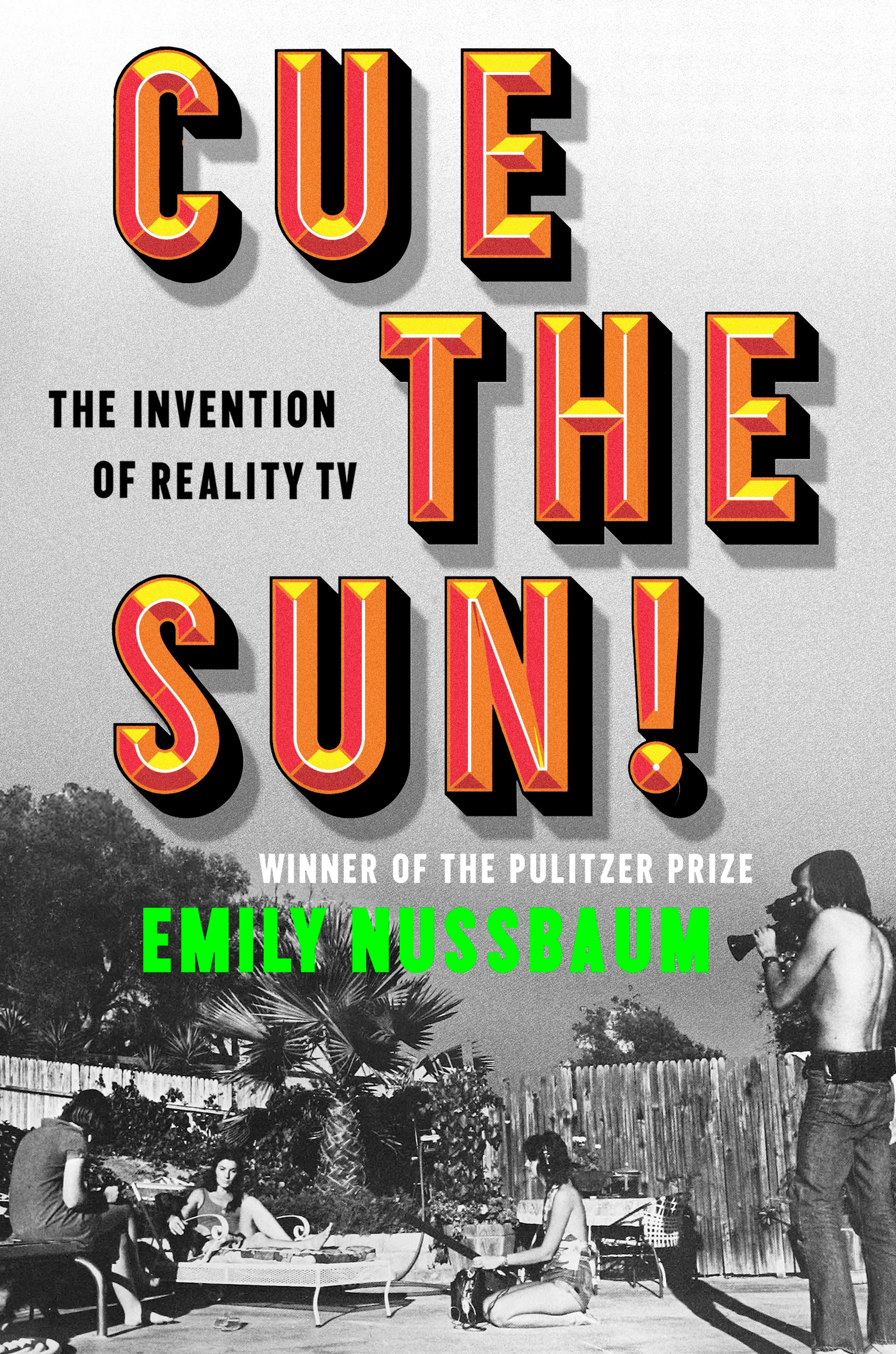
As a longtime fan and critic of reality TV, I have watched with great interest as this genre has evolved from a novelty to a mainstay of modern television. Emily Nussbaum‘s new book, “Cue the Sun!: The Invention of Reality TV,” offers a fascinating look into the origins and history of reality TV, drawing on Nussbaum’s extensive knowledge and experience as a critic and journalist.
Nick Lachey and Jessica Simpson were newly married and facing the dilemma over whether to eat chicken or tuna when reality TV critic Emily Nussbaum initially thought of penning a book on this emerging television genre.
Nussbaum shares that she held off for twenty years before writing “Cue the Sun!: The Invention of Reality TV” in 2003. This was when reality TV had firmly taken root in the industry. The inspiration struck her during conversations with friends and colleagues as they watched the surge of popular shows such as “The Bachelorette,” “America’s Next Top Model,” and “Joe Millionaire.”
Despite the skepticism of some critics who dismissed the genre as fleeting (you can add a chuckle here if you’d like), Nussbaum forged a successful career in criticism. She began as a culture editor at New York Magazine and is currently a staff writer for The New Yorker. Her essays on influential TV shows such as “The Sopranos” and “Mad Men” were published in her first book, “I Like to Watch: My Journey Through the TV Revolution,” which was released in 2019.
Nussbaum had a two-book agreement with Random House for her first book. For her second book, she decided to explore an idea she had considered two decades prior, but this time in a reporting style instead of a critical one. Through over 300 interviews with the creators, Nussbaum tells the intriguing story of reality TV’s history from its inception in 1947 until 2009.

As someone who grew up in the golden age of reality TV, I can tell you that the evolution of this genre from its humble beginnings in 1947 to the modern-day spectacle it has become is nothing short of remarkable. But let me tell you, “Cue the Sun,” out next Tuesday, isn’t your run-of-the-mill history of reality television.
The organization of “Cue the Sun!” is somewhat sequential but primarily groups programs based on shared themes: game shows, prank shows, reality soap operas, and clip shows. Notable examples within this category are the prank show “Candid Camera,” which originated from the radio program “The Candid Microphone” in 1947, and clip shows such as “America’s Funniest Home Videos” and “Cops.” Nussbaum extensively explores these shows during the initial portion of her book.
She explains that cinema verité, which is often seen as an advanced form of filmmaking where the camera captures raw truth with great patience, is transformed in reality TV through the addition of commercial elements. These elements include quick pacing, serialization, affordability, and added pressure on people involved in the production.
In early 2020, Nussbaum began her reporting for her book, unknowingly signaling the unusual year ahead. She contracted COVID-19 during one of her initial reporting trips and later experienced long-term effects. During this period, she interviewed John Langley, the creator of “Cops” and a significant figure in “Cue the Sun!” In June 2020, the long-running clip show was taken off the air due to the Black Lives Matter protests that summer (it has since returned).
I once heard someone make a sadly misinformed comment about the TV show “Cops.” They believed the issue wasn’t that it failed to expose police brutality but rather that officers would behave more courteously on camera, even as they continued to misuse their power behind the scenes. However, this argument didn’t stand up to scrutiny because nowadays, everyone has become a reality producer with a camera in hand. I recall Nussbaum painting a vivid picture of this reality through her words.
Nussbaum disagrees with Langley’s viewpoint in “Cue the Sun!” about “Cops” being unbiased in its portrayal of raw material. She recognizes, however, that among all the shows discussed in the book, “Cops” is the one with significant ethical concerns.
Nussbaum, like many others, finds great pleasure in watching the show “Project Runway.”
“This program is known for promoting creativity and supports the LGBT+ community. It’s hosted by the delightful Tim Gunn, and is related to ‘Project Greenlight.’ I later discovered that ‘Project Runway’ was actually created with the intent of focusing on models, as Harvey Weinstein had envisioned.” (Note: Miriam Haley, a former production assistant, alleged that Weinstein sexually assaulted her at his apartment in 2006 during the trial in 2020.)
Reality shows like “Project Runway,” “Survivor,” and “The Amazing Race” have garnered acclaim for innovating the genre and making cultural impacts. However, according to Nussbaum, it’s the reality stars of more controversial shows, such as the Kardashians, who have the most favorable working conditions, as they essentially produce their own “soft-scripted” programs.
“According to her, the less authentic a show appears, the more morally sound it can be. She distinguishes between these programs and those where people agree to be ‘reality’ stars, acknowledging that the latter may still raise ethical concerns, but they are genuine in their own manner.”
In her New Yorker article about the reality TV show “Love Is Blind,” Nussbaum found a group of participants, whom she referred to as “earnest enthusiasts” or “genuine amateurs,” occupy a borderland between scripted actors, hosts, and documentary subjects. These individuals lack the same level of protection as their counterparts in more clearly defined roles.
During the writing of my book, no one was taking steps to shield reality TV cast members from harm. For instance, Bethenny Frankel called for unity among reality television stars to unionize during last year’s Screen Actors Guild-American Federation of Radio and Television Artists strike. (Nussbaum conversed with producer Andy Cohen before the filing of several lawsuits against Bravo’s franchise by other Housewives.) Nussbaum explains that this genre, which grew from the 1988 Writers Guild of America strike that led to shows like “Cops,” functions as a replacement for writers and actors. It is essentially a cost-cutting strategy.
Although it may seem challenging for some to empathize with reality stars who have amassed fortunes from their participation in this genre, Nussbaum argues that they deserve fundamental labor rights and fair compensation. The allure of reality TV as a guilty pleasure often blinds us to its other aspects, including the fact that it is a workplace where individuals are entitled to respect and decent treatment.
Read More
- Mobile Legends: Bang Bang (MLBB) Sora Guide: Best Build, Emblem and Gameplay Tips
- Clash Royale Best Boss Bandit Champion decks
- Best Hero Card Decks in Clash Royale
- All Brawl Stars Brawliday Rewards For 2025
- Best Arena 9 Decks in Clast Royale
- Brawl Stars December 2025 Brawl Talk: Two New Brawlers, Buffie, Vault, New Skins, Game Modes, and more
- Vampire’s Fall 2 redeem codes and how to use them (June 2025)
- Clash Royale Witch Evolution best decks guide
- Clash of Clans Meltdown Mayhem December 2025 Event: Overview, Rewards, and more
- Clash Royale Furnace Evolution best decks guide
2024-07-18 20:05